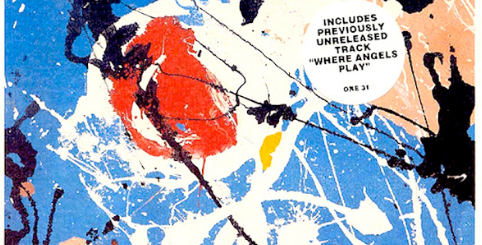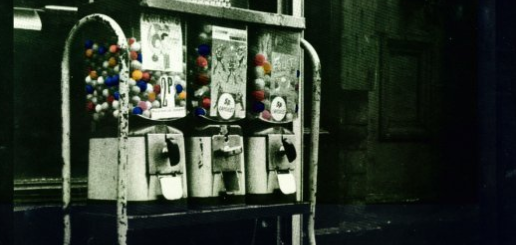Elizabeth My Dear by The Stone Roses Lyrics Meaning – Decoding the Revolutionary Tune
Lyrics
And boil my bones
I’ll not rest
‘Til she’s lost her throne
My aim is true
My message is clear
It’s curtains for you
Elizabeth, my dear
On the surface, ‘Elizabeth My Dear’ by The Stone Roses might come across as a concise, almost medieval ditty—a flicker of a track in the midst of the band’s swaggering self-titled debut. But those adept in the art of lyrical analysis understand that beneath its folkish simplicity lies a subversive heart, beating with the fervor of a dissident. It takes a precise ear and an understanding of the historical and cultural contexts of late-’80s Britain to unearth the compelling layers embedded within.
Released in 1989, ‘Elizabeth My Dear’ tapped into an undercurrent of political discontent pervading the nation. Indebted to the past and yet undeniably relevant in its time, the song’s cryptic poetry serves as a timeless vehicle for resistance. Its potency is not just in its lyrics, but also in its brevity and placement within a larger body of work that rebelled against the status quo.
A Royal Rebellion Packaged in a Minute
Clocked at just under a minute long, ‘Elizabeth My Dear’ is a masterclass in musical economy. Much like punk anthems of the previous decade had used brevity as a weapon against bloated rock operas, The Stone Roses used the same tactic but with a sound that nodded to England’s troubadour tradition. This abrupt yet melodiously vibrant interlude serves as a kind of insurrection in miniature, a potent protest packed with enough lyrical punch to ignite debate.
The plainspoken delivery belies a scathing critique, one that digs into the monarchy itself, using the symbol of Elizabeth as a metonym for the institution. Amidst a soundscape that seems pulled from a bygone era, The Stone Roses anchors their discontent in the present, ensuring the track’s lasting appeal as an understated anthem of rebellion.
The Metaphorical Throne: A Symbol of Power in Jeopardy
The reference to a throne in ‘Elizabeth My Dear’ goes beyond the physical seat of power. It represents the structure of the British monarchy and all its attendant implications. When the lyrics speak of not resting until she’s ‘lost her throne,’ it is a call for upheaval—a radical change in the establishment at a time when such views were polarising public opinion.
Set against the backdrop of Thatcher’s Britain, with its stark class divisions and nationalistic fervor, the song takes on a revolutionary tone. It is both a longing for a return to egalitarian ideals and a bold statement against inherited power and privilege. By envisioning the loss of the throne, it suggests a broader dismantling of the systems that keep it in place.
Dissecting the Haunting Echoes of Traditional Folk
Musically, ‘Elizabeth My Dear’ draws heavily from the British folk tradition. Its melody is a reworking of ‘Scarborough Fair,’ a classic English ballad that itself speaks to themes of unattainable love and hardship. This deliberate choice of tune adds an extra layer of resonance, embedding the modern-day discontent of The Stone Roses in the folk memory of the nation.
In repurposing a traditional melody, the band taps into a shared cultural heritage while simultaneously fracturing it, bending the familiar to serve an entirely new narrative. The juxtaposition of serene folk music with discordant lyrics creates a dissonance that haunts the listener, inviting them to question the status quo.
Unraveling the Song’s Hidden Meaning: A Closer Look at Subversion
To truly grasp the subversive core of ‘Elizabeth My Dear,’ one must dive into the subtext. The phrasing—’Tear me apart and boil my bones’—speaks to a self-sacrificial readiness to confront a powerful adversary. It’s a metaphor for the extent to which individuals may need to suffer in pursuit of what they believe is just and fair.
Moreover, the song’s ending—’It’s curtains for you, Elizabeth, my dear’—is a play on the colloquial expression for the end of something, most often referring to death. In this context, it suggests the end of an era, the termination of a lineage, or in a broader political sense, the closure of a period marked by monarchical dominance.
Memorable Lines: The Striking Simplicity That Resonates
‘My aim is true / My message is clear’—these words cut through the verses with an ambiguous yet pointed precision. They could be interpreted as the speaker’s unwavering conviction and the clarity of his grievances. The Stone Roses exhibit here their ability to encapsulate complex emotions and socio-political commentaries within a sparse lyrical framework.
‘It’s curtains for you, Elizabeth, my dear’—this memorable final line serves as both a definitive closing statement and a rallying cry. It resounds with the certainty of change, as if heralding the inevitable fall of outdated institutions. With equal measures of poetic flare and defiance, The Stone Roses have sown a line into the fabric of protest music that lingers long after the last note fades.








